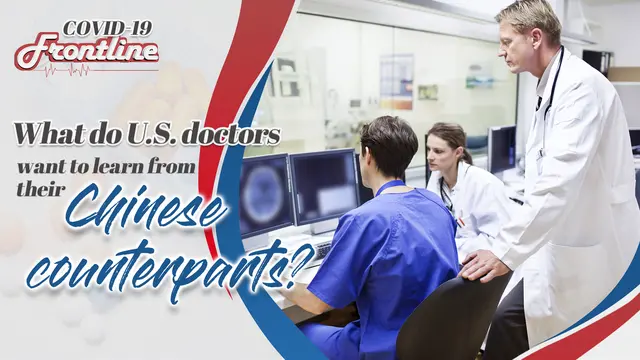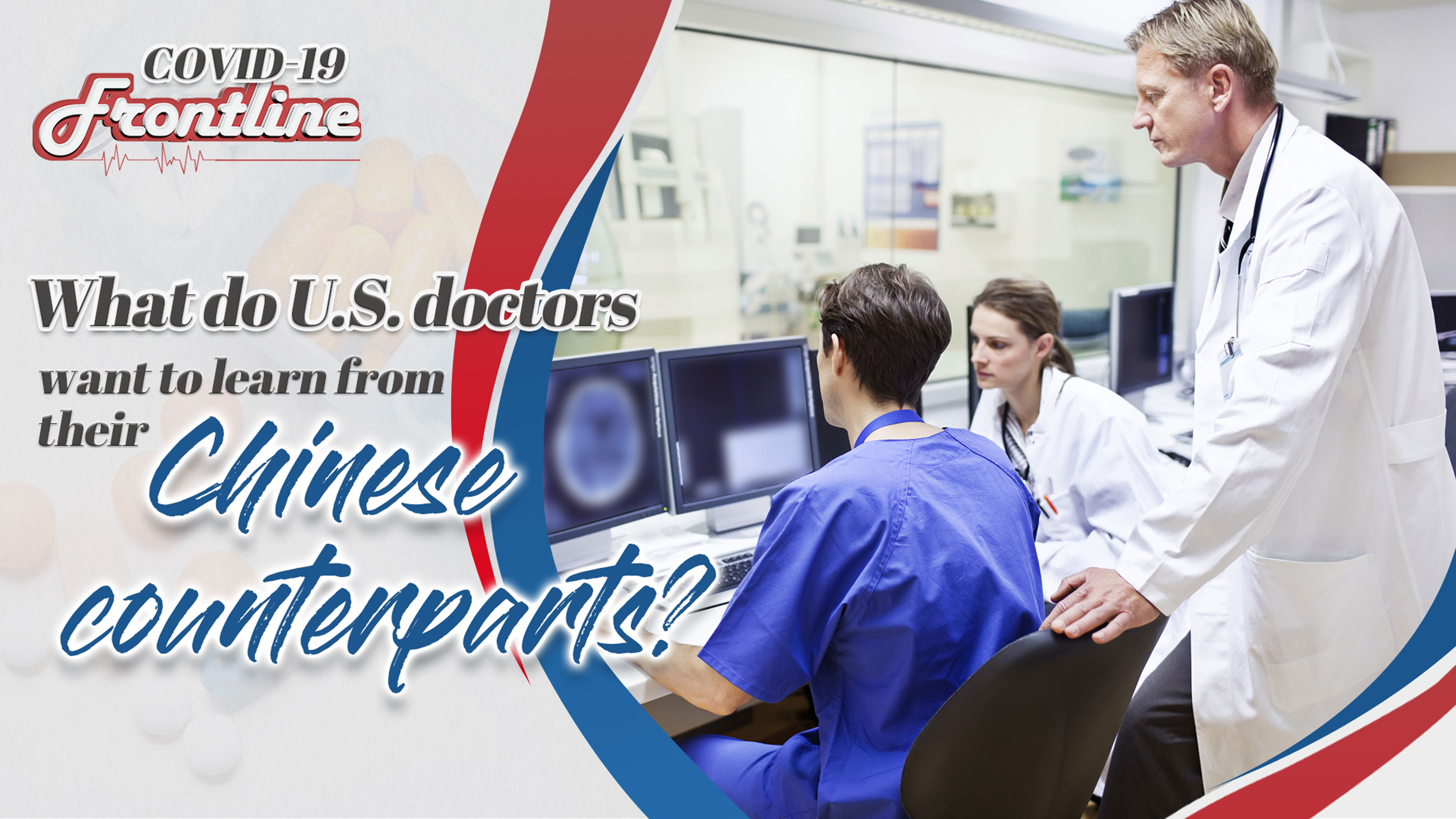
**Editor's Note: **On March 12, 2020, the World Health Organization (WHO) declared COVID-19 a pandemic, and as of Saturday (March 21), more than 170 countries have confirmed over 230,000 cases, according to the WHO. On CGTN's live program "COVID-19 Frontline," we invited medical workers and experts from China's epicenter Wuhan and from all over the world to share their experiences and take questions from social media, in the hope of providing more information for those who are battling against the pandemic.
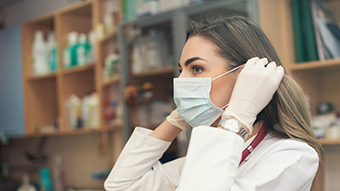
"Is it essential to wear N95 masks, or a surgical mask is sufficient if there is no aerosolized procedure? asked Dr Steven Bergmann, chair of the Medicine Department at Princeton Medical Center, during a video conference with a team of Chinese doctors.During a live program on Friday, CGTN invited doctors from Peking Union Medical College Hospital (PUMCH), one of China's top hospitals, answered questions from their U.S. counterparts at Princeton Medical Center about how China dealt with COVID-19.
The Chinese team has been treating patients in China's hardest-hit city Wuhan since February.
Fan Junping, a pulmonologist at PUMCH, said that all the medical staff wore N95 masks and personal prevention equipment (PPE) in their work, and none of them were infected.
The American doctors said that there is a severe shortage of N95 masks in the U.S. and asked whether surgical masks can be used instead."No matter what department you are in, at least wear something protective. And we have no evidence that surgical masks will have the same effects," Fan replied, adding that N95 masks and PPEs are highly recommended to those working in highly risky departments such as emergency, fever and respiratory.
He said back in February, N95 masks and PPEs were also in short supply in Wuhan. But the Chinese government managed to ease the problem in a short period of time by mobilizing factories to quickly expand production capacity.As of Saturday, the U.S. has reported almost 20,000 confirmed COVID-19 cases, with over 270 deaths, while millions of Americans have been ordered to stay at home as much as possible in an attempt to slow the spread of the novel coronavirus.Meanwhile, central China's Hubei Province, the epicenter of the outbreak in the country, reported zero new infections for the third straight day on Saturday, and the situation outside Hubei has been largely been put under control.
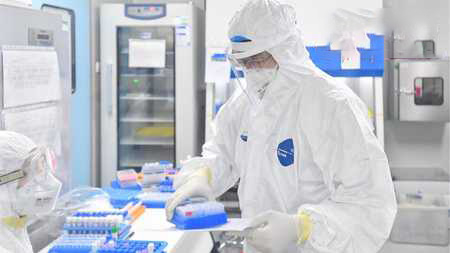
How do antivirals work for confirmed patients?
Another question from the U.S. doctors was about the treatment – how do antivirals work for COVID-19 patients?In the most recent diagnosis and treatment guideline issued by China's National Health Commission, some broad spectrum antivirals have been recommended, especially in the initial stage of infections, said Cao Wei, a physician of infectious diseases at PUMCH who has been treating critically ill patients in Wuhan.However, efficacy of all antivirals have not been proven, Cao said, adding that based on her experience, they may have very limited effects on critically ill patients who have multiple organ injuries.
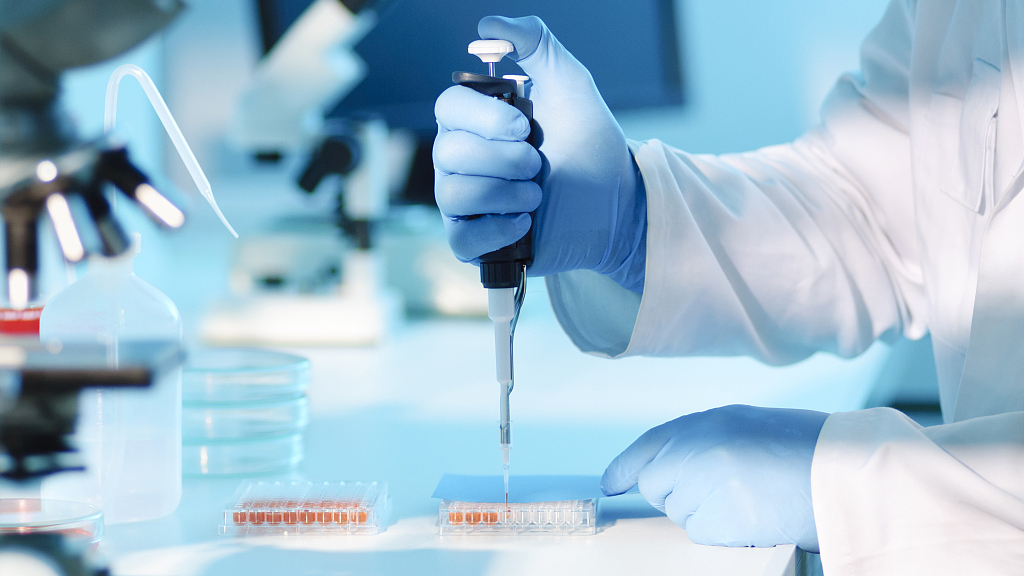
How can you ensure the efficiency of COVID-19 tests?
Dr. John Heim, Chair of Surgery Department at Princeton Medical Center, said that one problem they are experiencing is not having enough test kits, and the other is that their tests are done in a big lab in a central location, meaning it could take days to get results. He asked about how China solved the problem and ensured the efficiency of COVID-19 testsDr. Xiao Meng, assistant director of Infectious Disease Department at PUMCH, said that in the initial stage, China's national center for disease control and prevention (CDC) required all samples be sent to local CDCs for COVID-19 testing. But soon they found the amount was beyond their capacity as there were too many patients waiting for their tests, and it took at least six to eight hours to get test results because of the transport time, which was inefficient. Then China decided to open clinical labs at hospitals to conduct the tests. His mother hospital, the PUMCH, got the certificate from the national CDC to do the test in late January.
(CGTN)
 简体中文
简体中文

